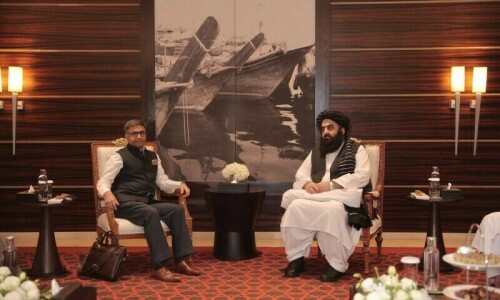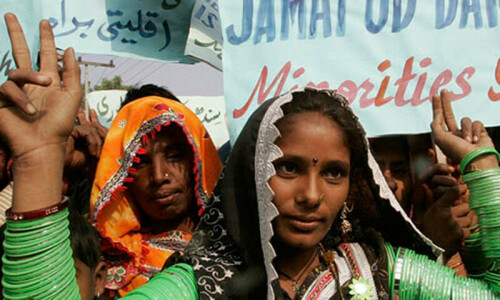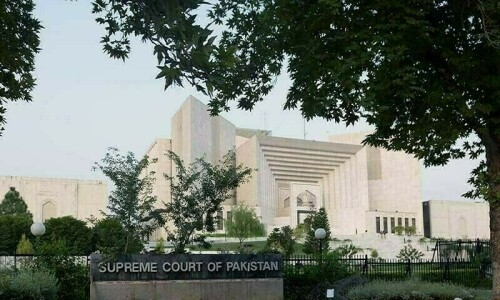IN the current US presidential election campaign, President Obama has been accused by his Republican rivals of being “weak” on foreign policy and presiding over America’s decline.
Empirical evidence indicates that Obama is more of a warrior than a wimp. The Obama administration has pursued a tough external policy seeking to reassert US interests simultaneously on several fronts.
Obama has sought to contain China’s growing economic and political power energetically. He warned that China’s military modernisation posed a threat to Asia; declared that the US will remain a Pacific power; and secured American involvement in China’s maritime disputes with Southeast Asian states. Australia recently accepted the stationing of US troops on its territory.
The Philippines is reportedly discussing the revival of US naval bases. India continues to be courted by Washington through all manner of incentives, including support for its quest for permanent membership of the Security Council.
Today, around its periphery, China can count only two friends —Pakistan and North Korea. Myanmar dropped out of China’s circle into the western camp two months ago. Pakistan is under intense pressure to align itself with US strategic priorities.
North Korea, in the midst of a delicate transition, remains under Security Council sanctions.
The US (and Israeli) moves against Iran are even more open and forceful: Security Council sanctions, electronic and political disruption of its nuclear programme, military and political support to Arab adversaries across the Gulf, progressive exclusion from the international banking system, an impending European oil embargo.
Tehran has accused the US and Israel of fomenting subversion in Iranian Baluchistan and assassinating several of its nuclear scientists. The Israelis openly debate the option of military strikes against the ‘existential’ threat of a nuclear Iran. Washington refuses to rule out the use of force against Iran.
In Afghanistan, despite the talk about talks with the Taliban, the US strategy remains one of force. The favoured tactics are the ‘night raids’ which have killed numerous civilians and the internationally illegal US drone attacks in Afghanistan and Pakistan (and increasingly elsewhere).
Considerations of legal or diplomatic norms have been even more absent in America’s recent dealings with Pakistan — as evidenced by the persistent drone strikes, the Davis affair, the clandestine raid to kill Osama bin Laden, the public allegations against the Pakistan Army and the ISI and the aerial shooting of Pakistani border troops.
Russia too is now the object of coercive diplomacy, despite the ‘reset’ button. An externally well-funded ‘democracy’ movement, exploiting the heavy-handed Putin-Medvedev switch, has heightened pressure on this hitherto impervious team.
The consequences of this new friction with Moscow are already evident in the Security Council.
Like others, the US was caught off guard by the popular revolts in Tunisia and Egypt and remained on the sidelines. But, evidently, the apparent success of the ‘lead from behind’ strategy in Libya has whet the appetite for indirect intervention. In Syria, the regime change that is being attempted involves strategic stakes that are even higher than Libya.
There are, however, two instances in which vigour has deserted the Obama foreign policy. Despite US diplomatic genuflection, India has not, as Washington expected, purchased American fighter jets or nuclear power plants; nor has it, so far, openly aligned against China, or adopted economic reforms to accommodate US multinationals. Quite the contrary, even while humming along with America’s love songs, India has joined China, Russia, Brazil and South Africa to resist the US on a number of global issues.
The only state leader to have publicly faced down President Obama is Prime Minister Netanyahu of Israel, refusing to meet Obama’s minimalist plea to freeze Israeli settlements and openly challenging him in a joint session of the US Congress.
Obama’s ‘robust’ external policy has scored one visible success: the virtual destruction of Al Qaeda in Afghanistan-Pakistan.
This ‘success’ would not have been possible without the cooperation of the Pakistan Army and, in particular, the ISI.
Apart from this, Obama’s forceful ways have neither resolved any ongoing crises nor reversed the relative decline of American global power and dominance. A conflict with Iran will be a regional and a global disaster, not least for the US and its allies. It is clear that the US will leave Afghanistan much as it was before 2001. Pakistan, gravely destabilised, will struggle for years to control militancy.
The Arab Spring is likely to become an Islamic summer. China will continue its rise to global power status. India’s power graph will also rise, though more uncertainly. Russia will remain a formidable force for the foreseeable future. America will have to adjust to a complex multilateral world. But history attests that it is as difficult to deal with declining powers as with ascendant states. Both transitions can be long and painful. The Empire will continue to strike back.
The writer is a former Pakistan ambassador to the UN.













































